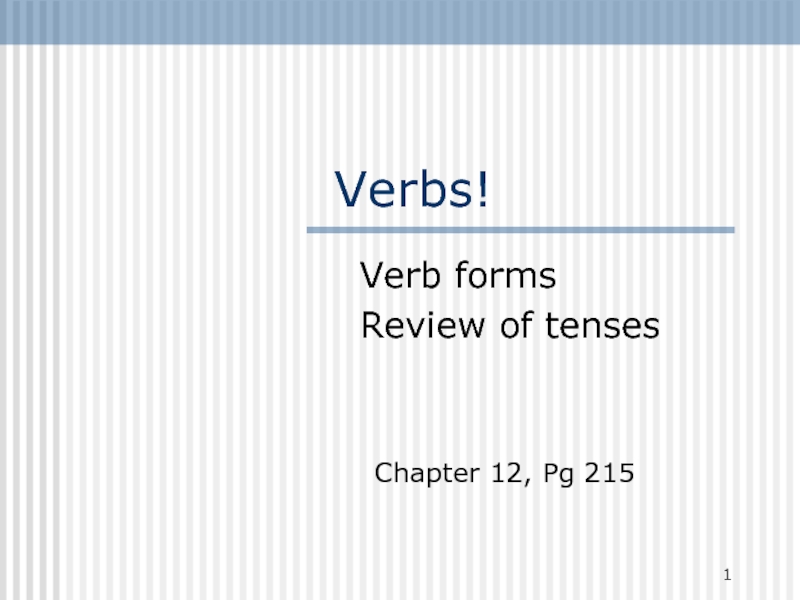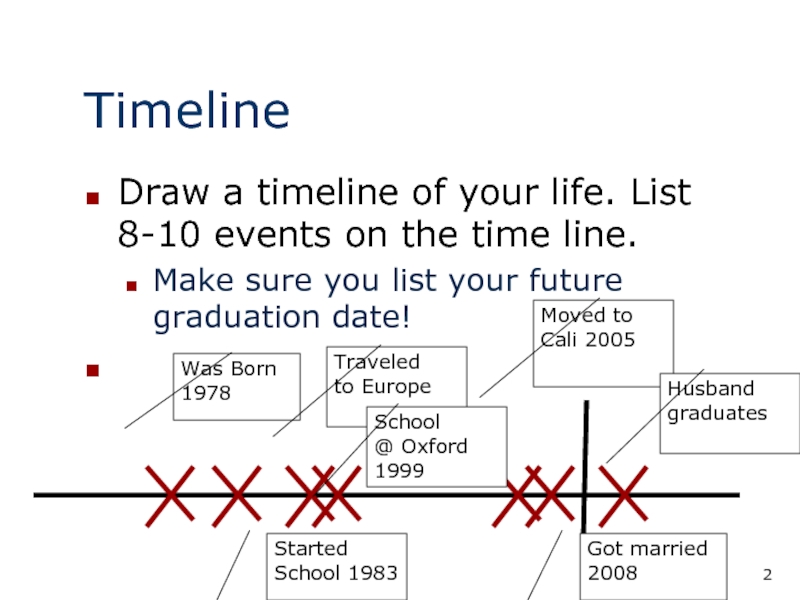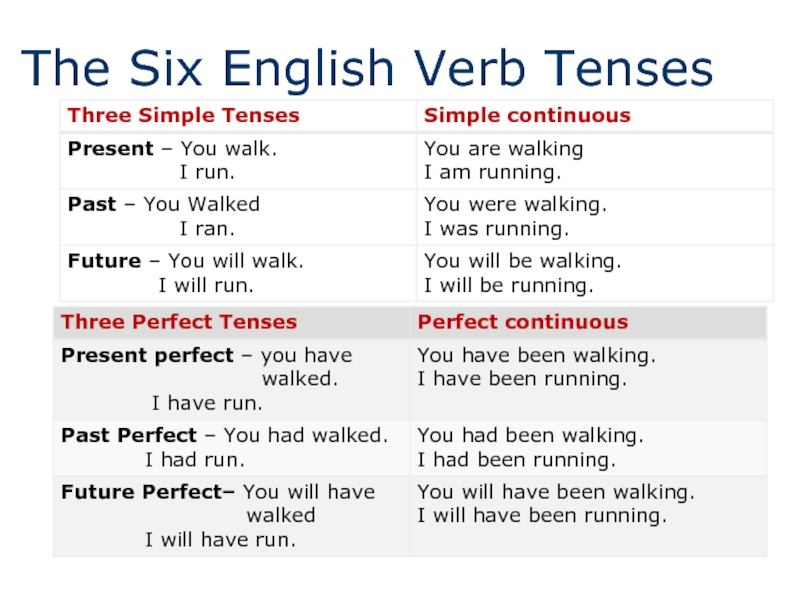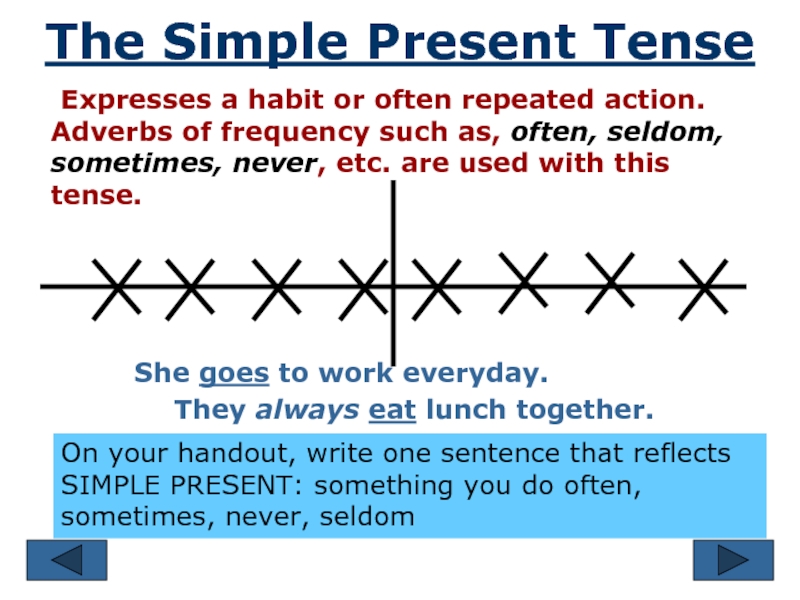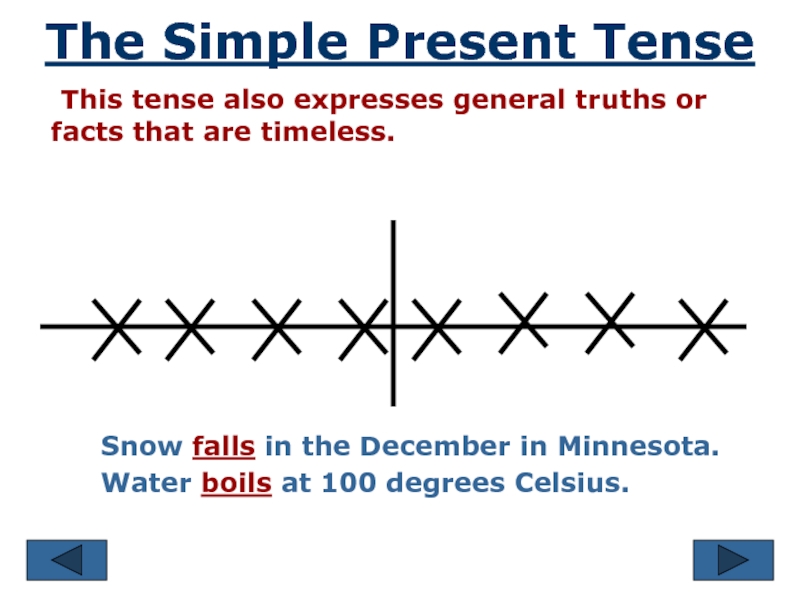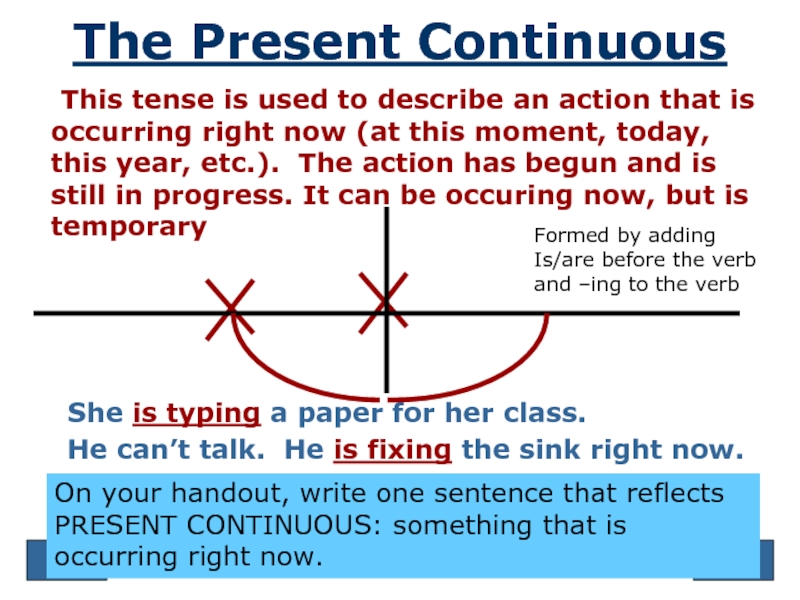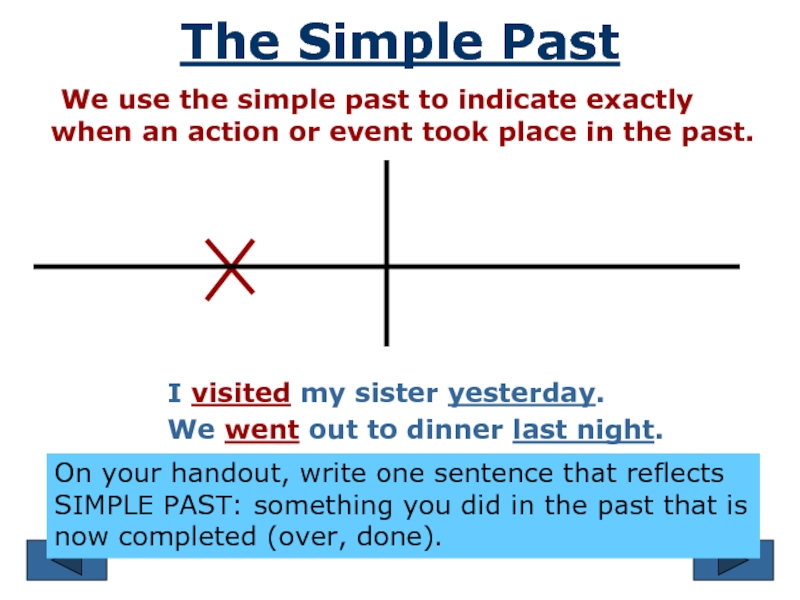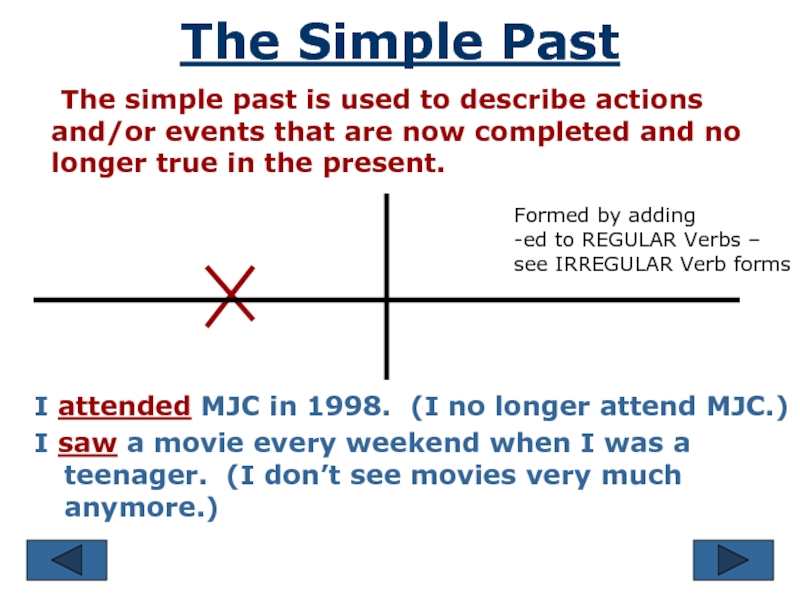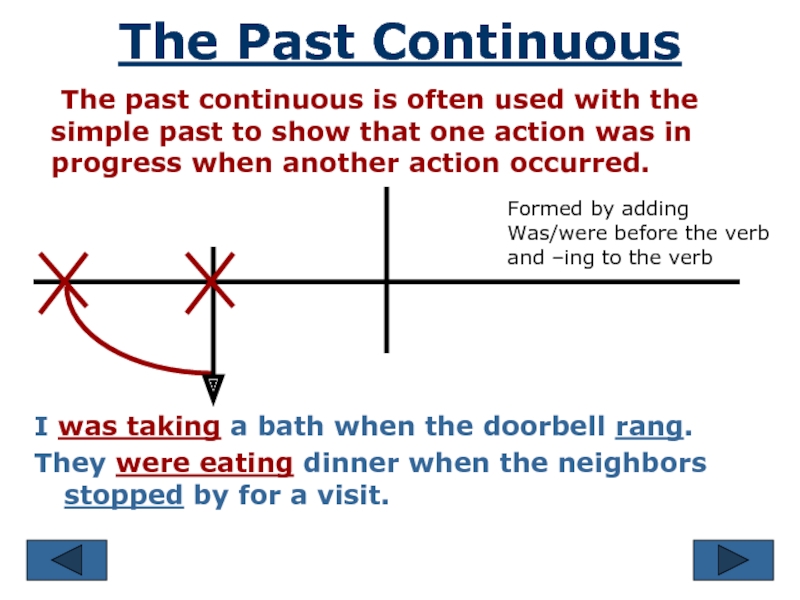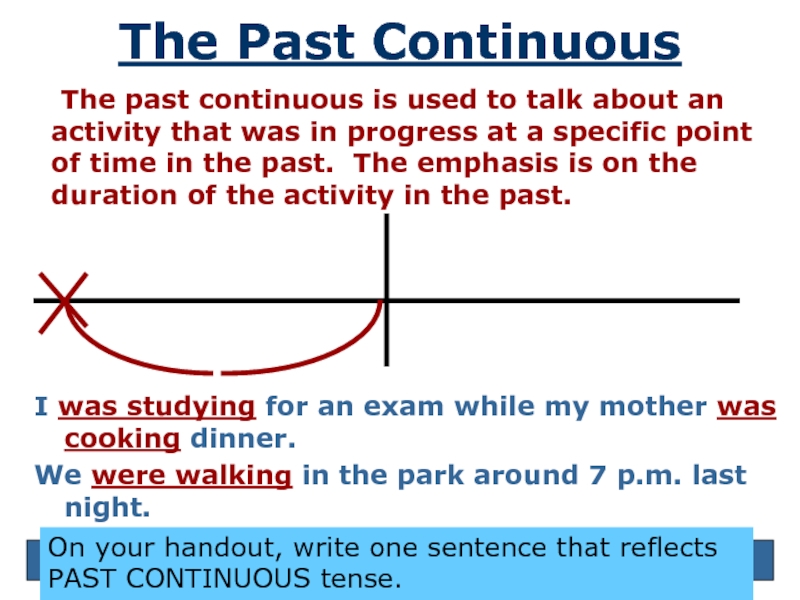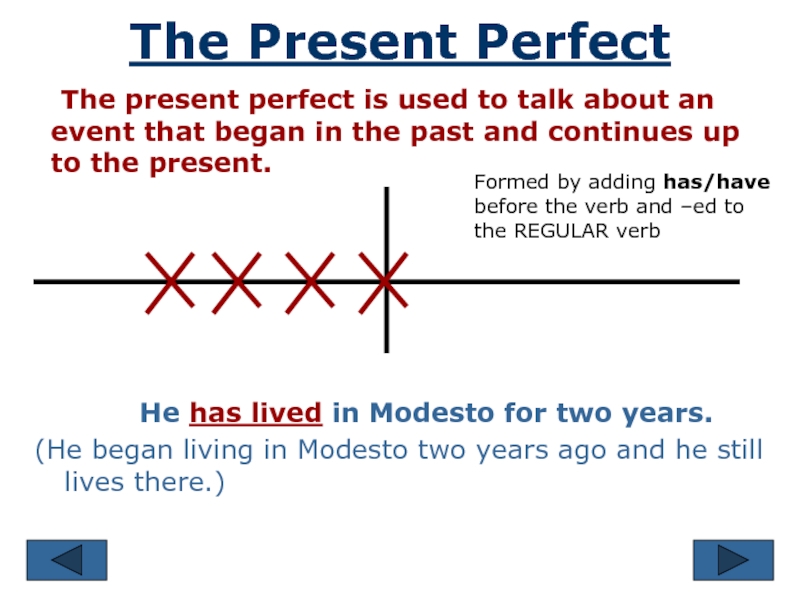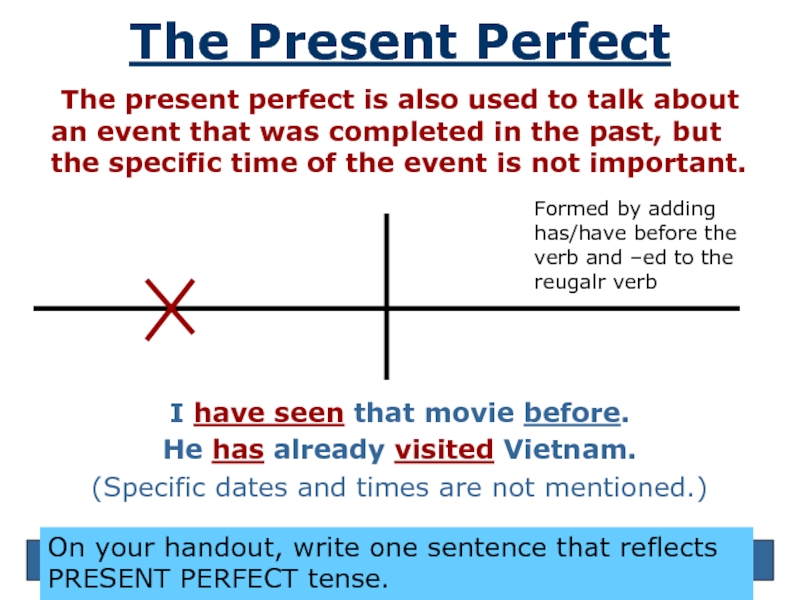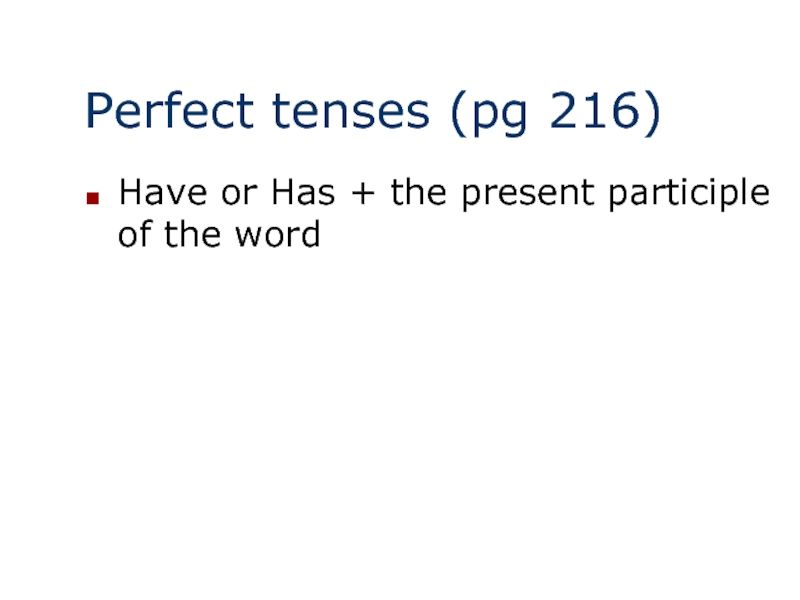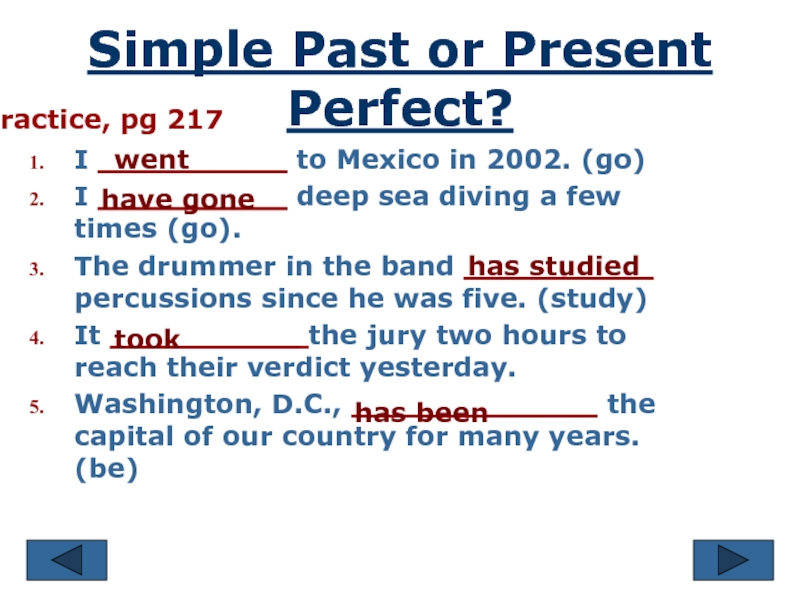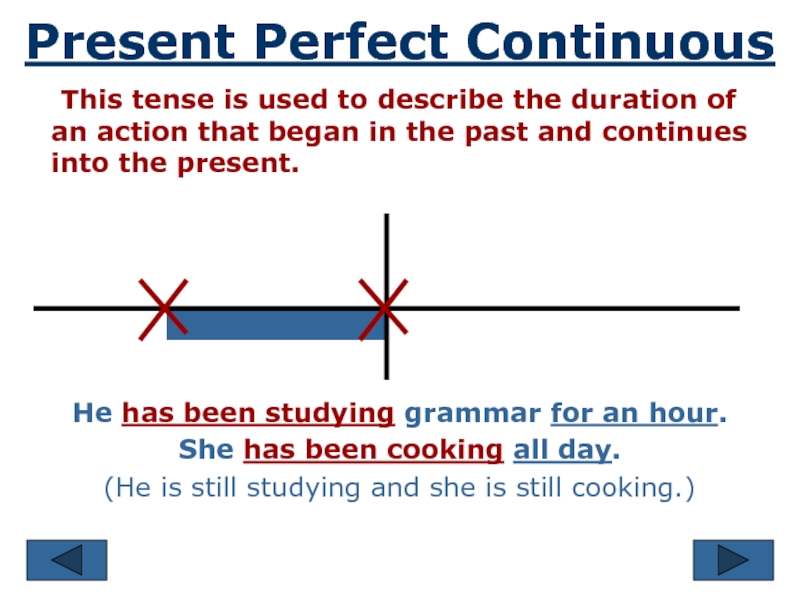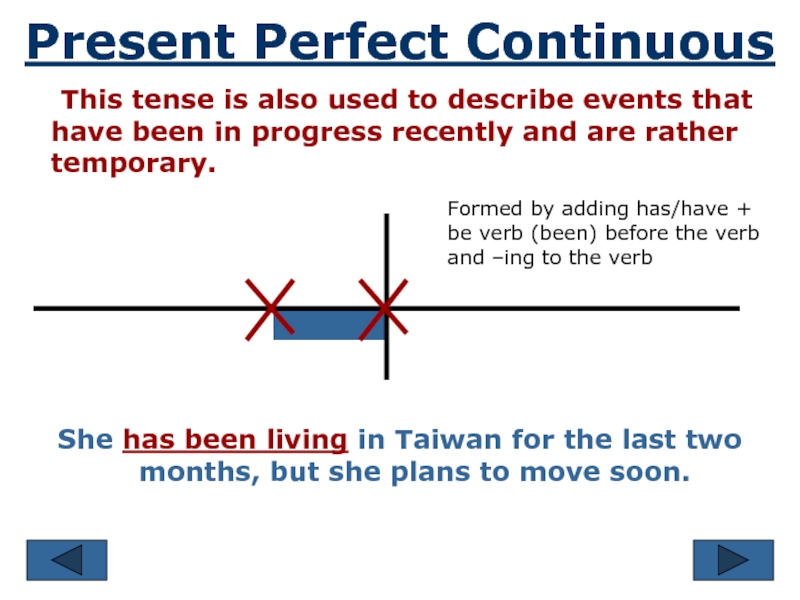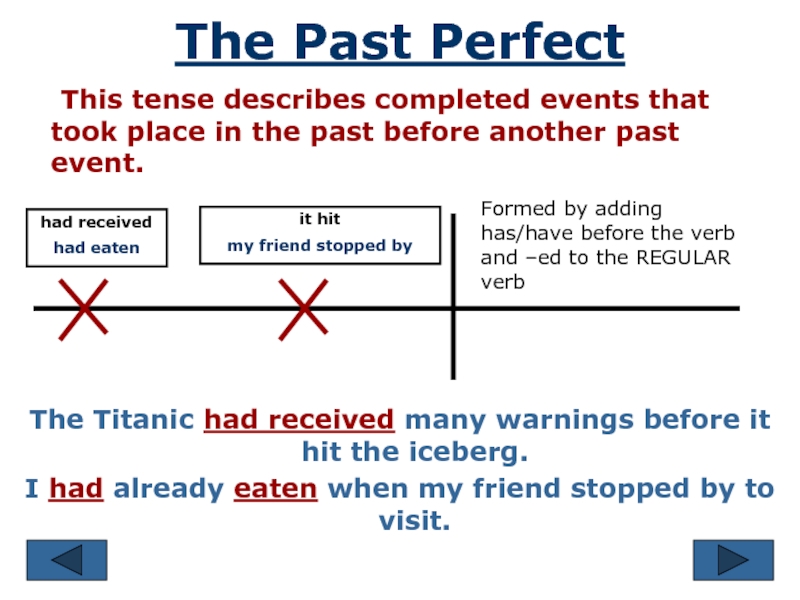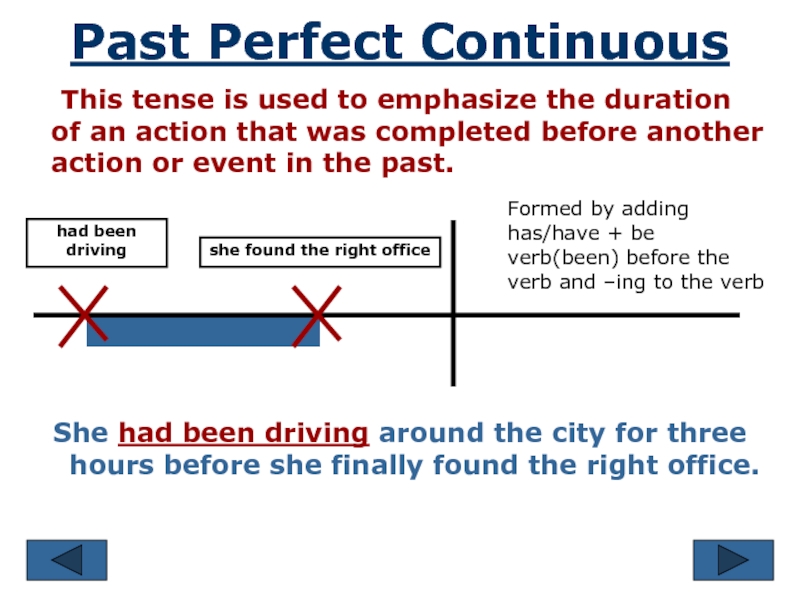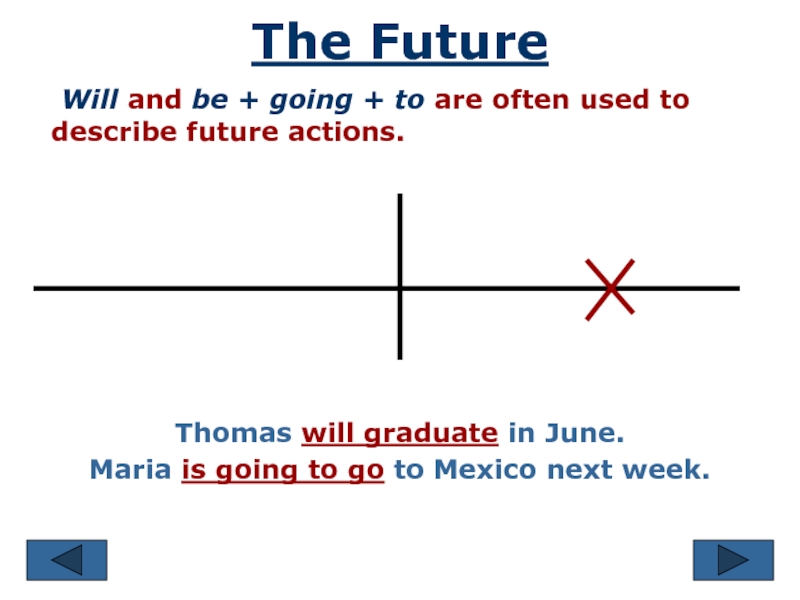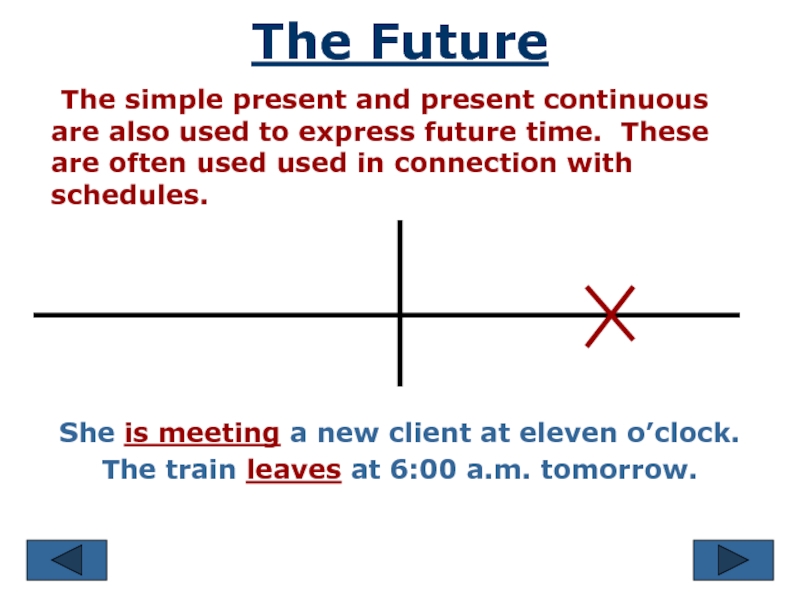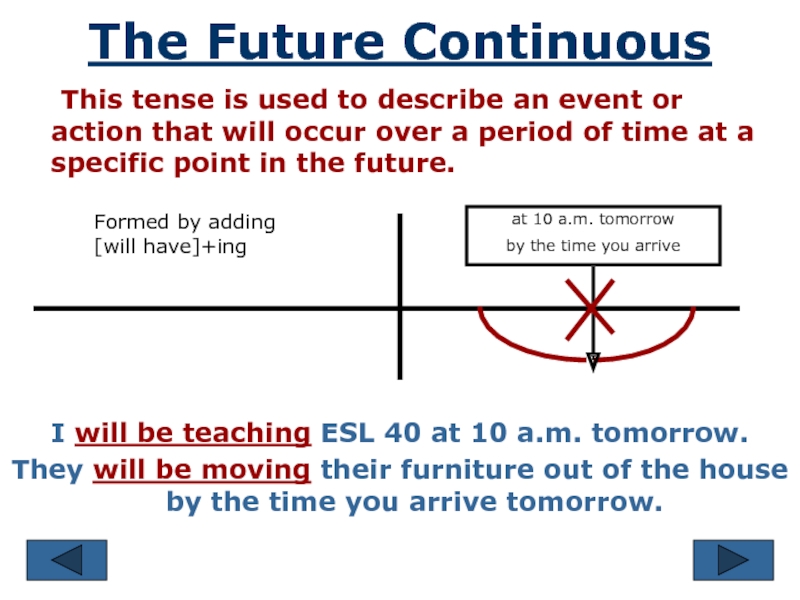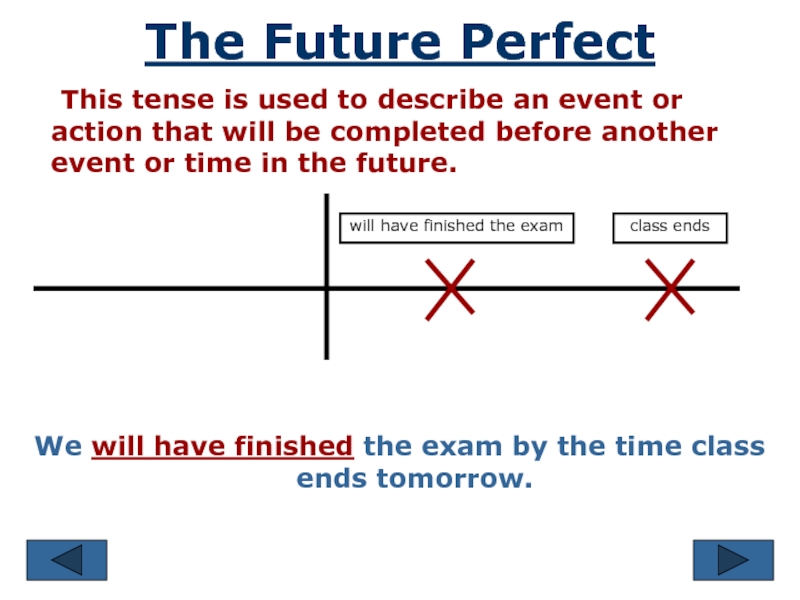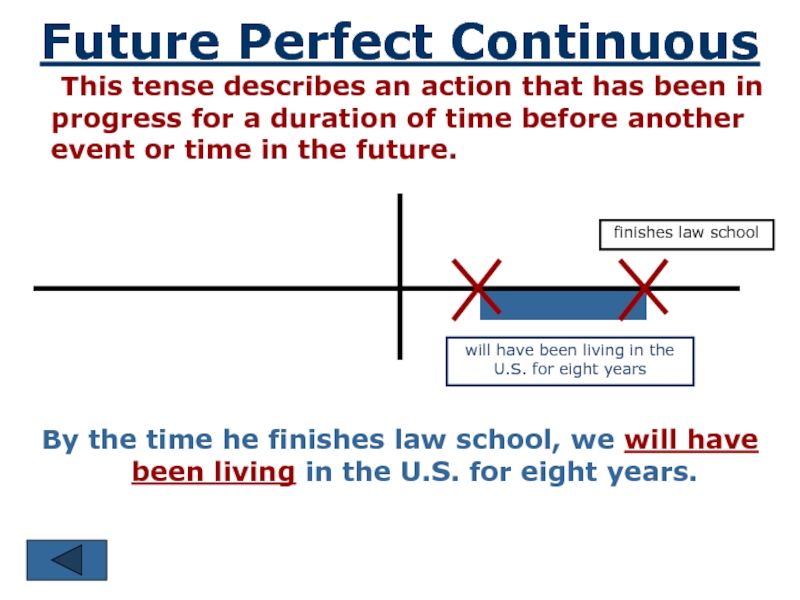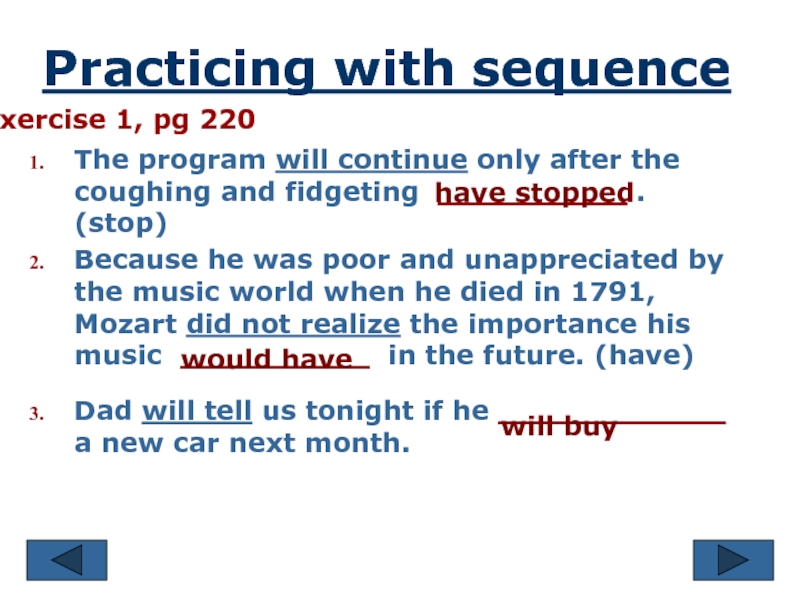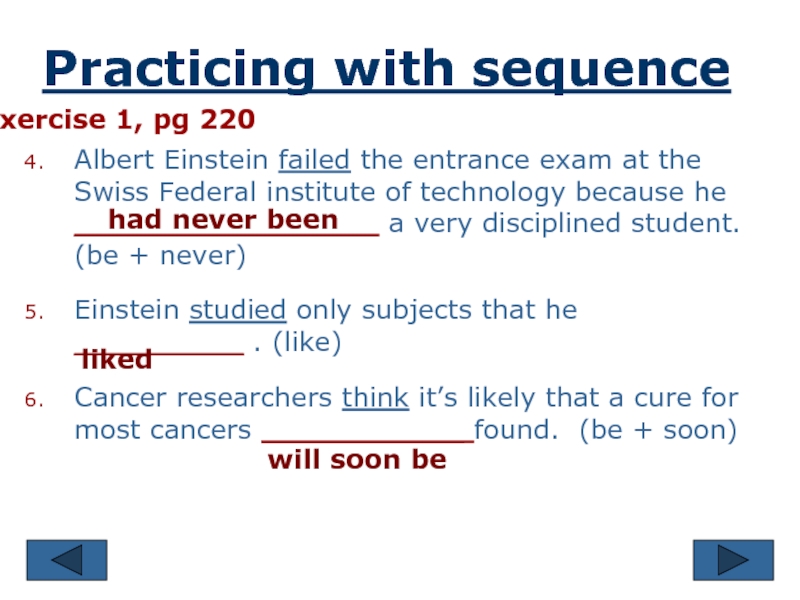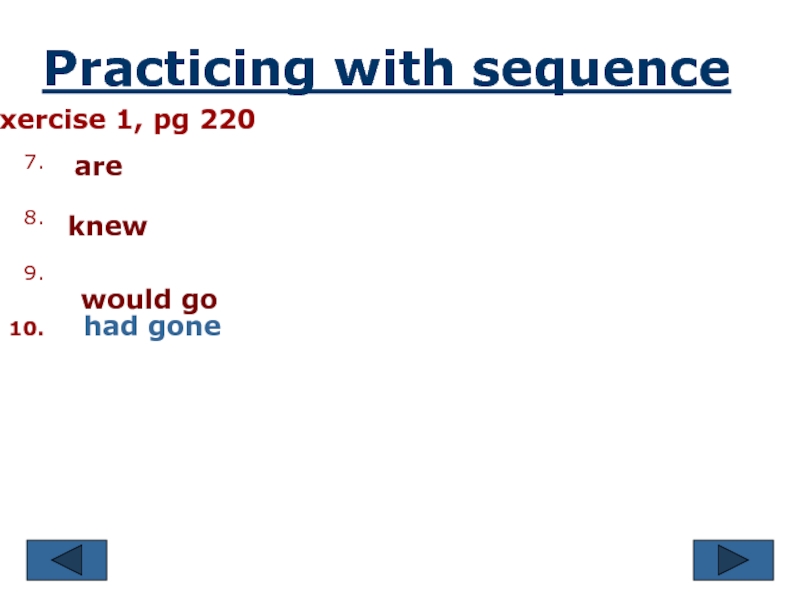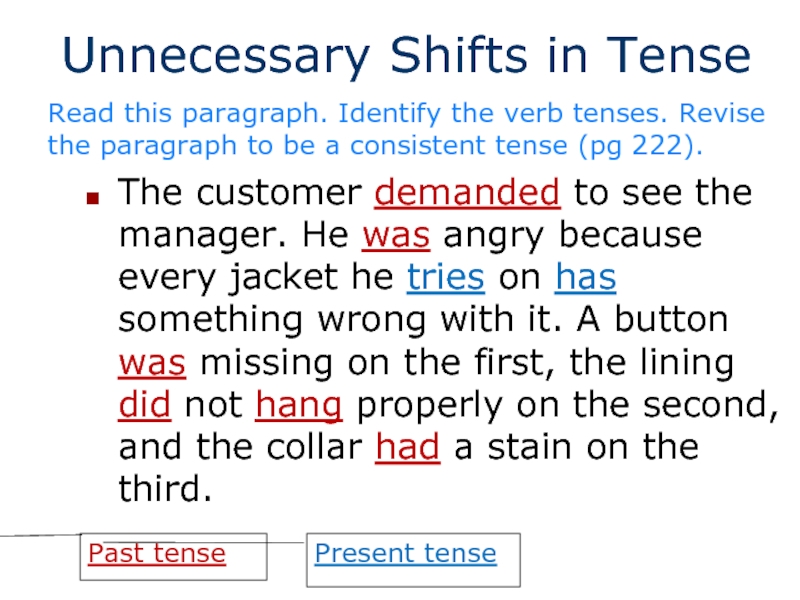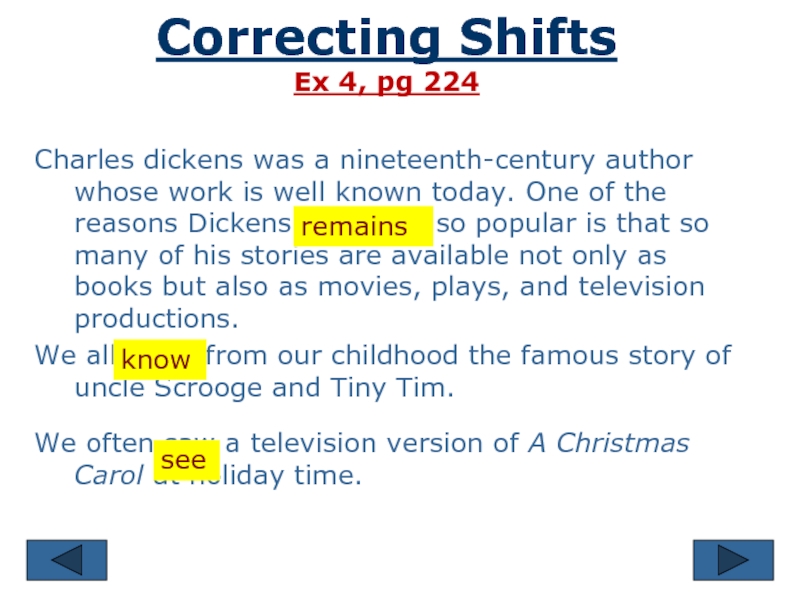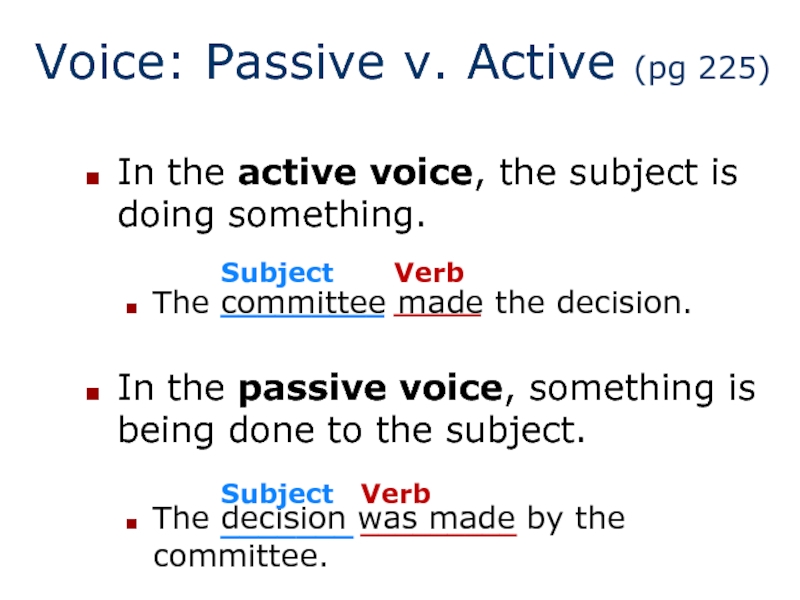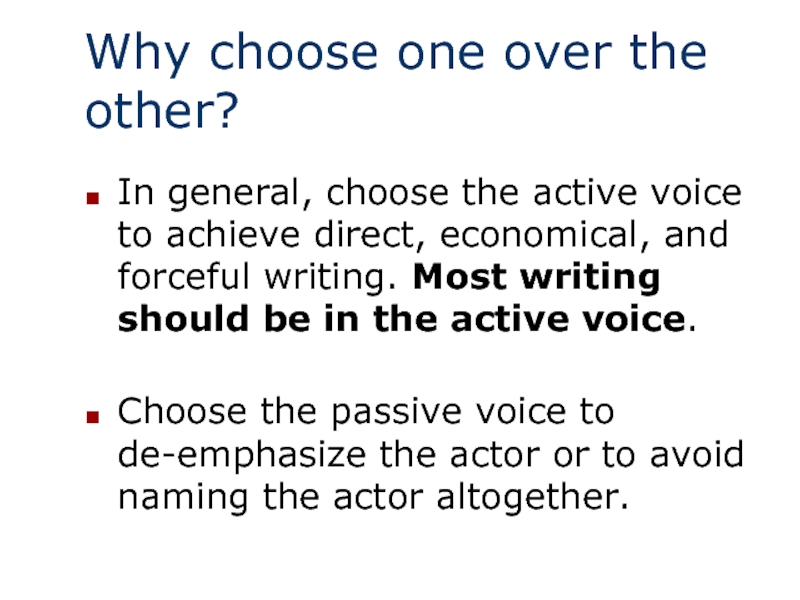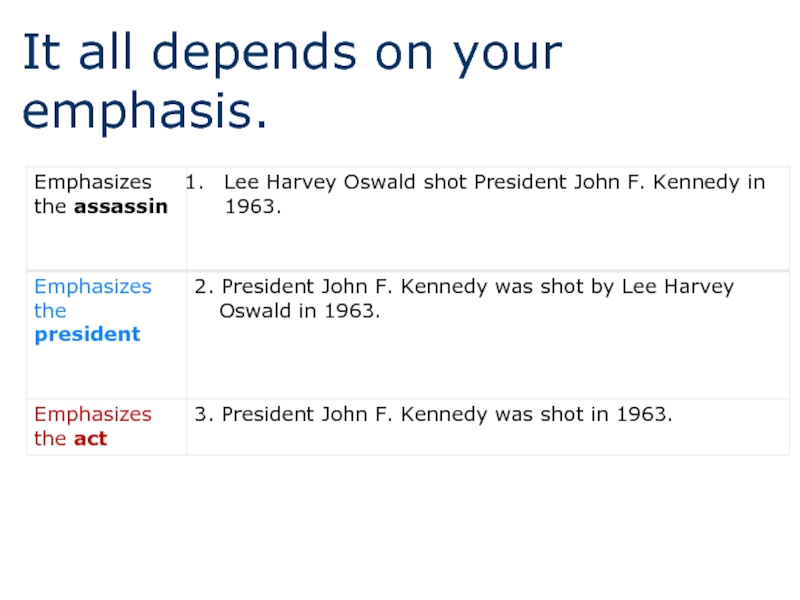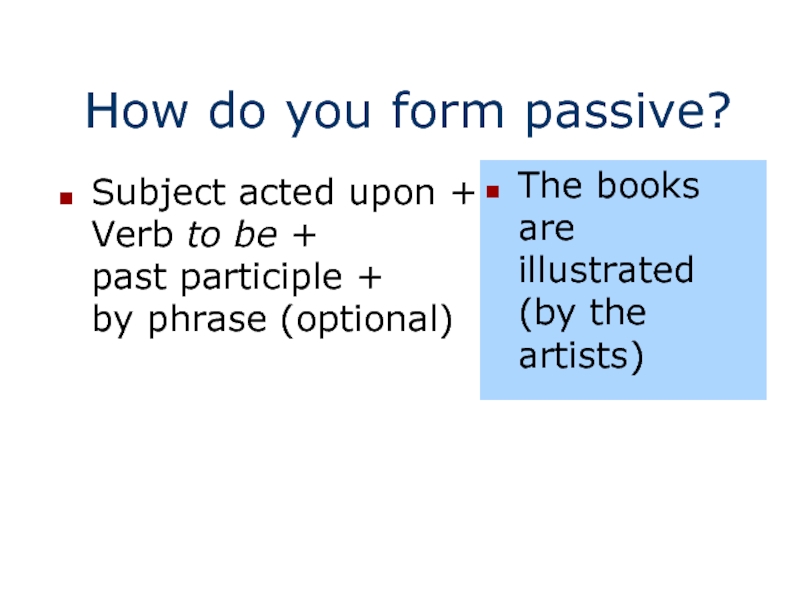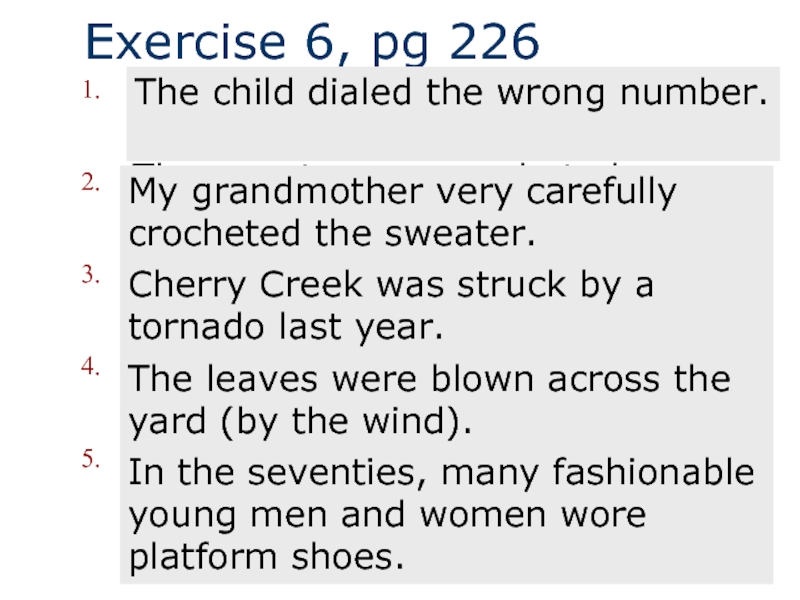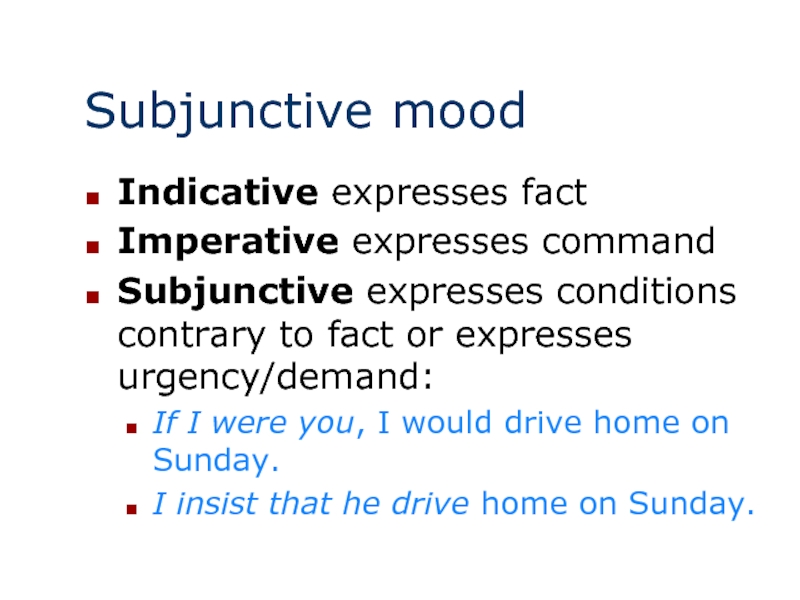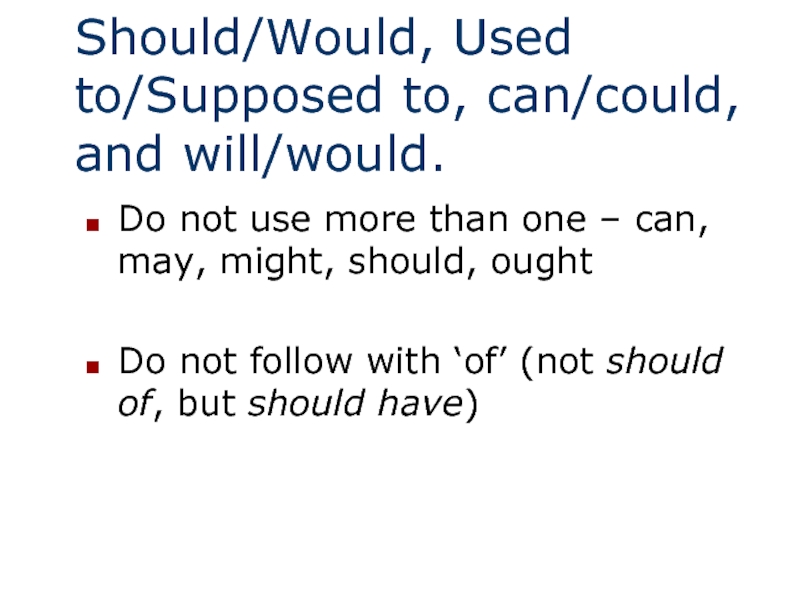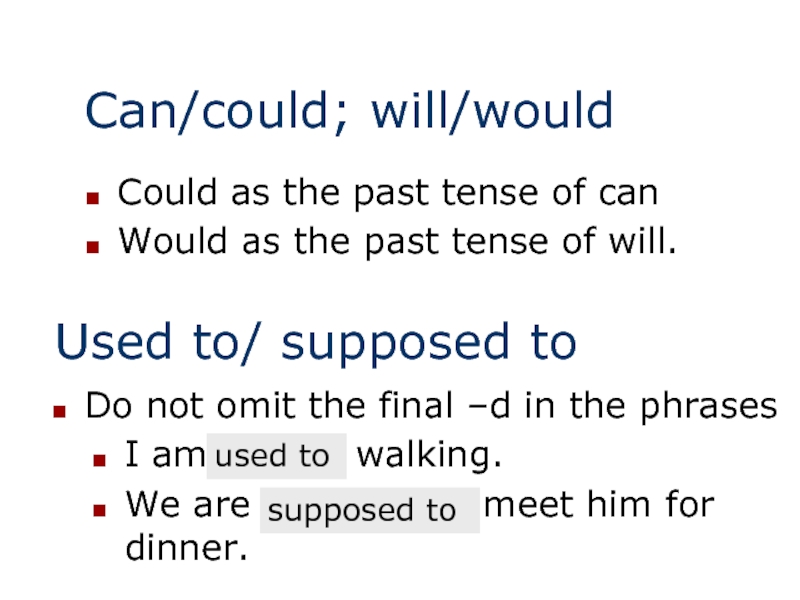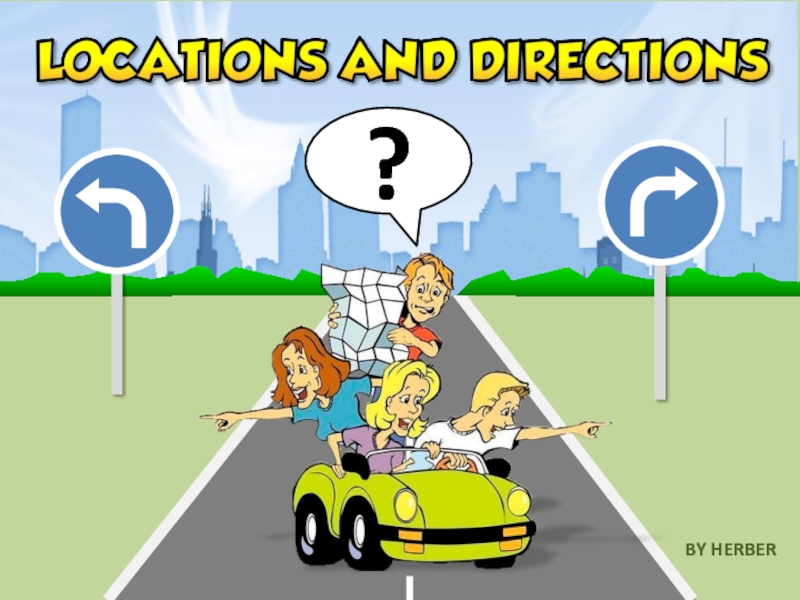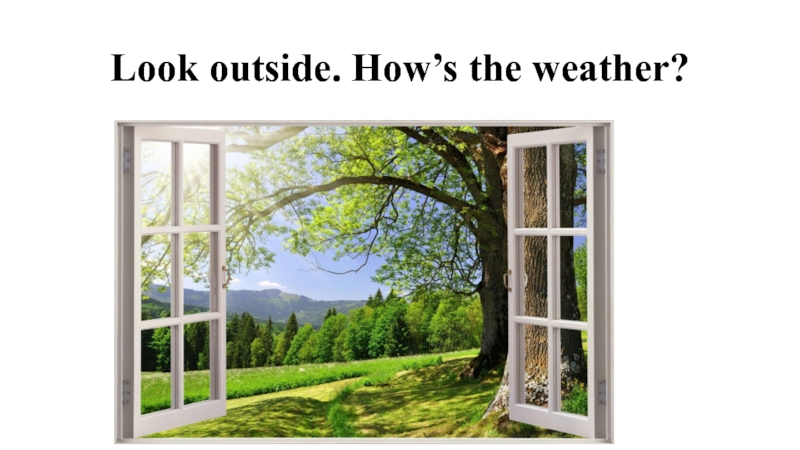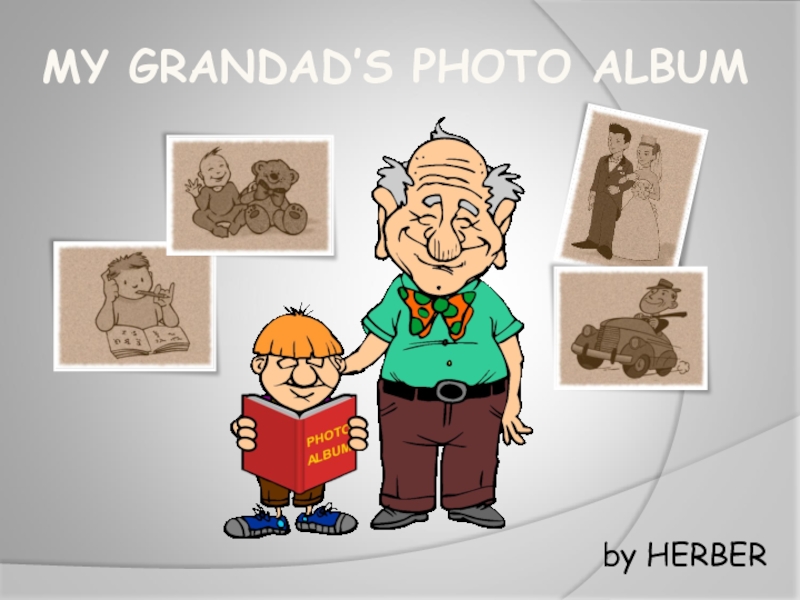- Главная
- Разное
- Дизайн
- Бизнес и предпринимательство
- Аналитика
- Образование
- Развлечения
- Красота и здоровье
- Финансы
- Государство
- Путешествия
- Спорт
- Недвижимость
- Армия
- Графика
- Культурология
- Еда и кулинария
- Лингвистика
- Английский язык
- Астрономия
- Алгебра
- Биология
- География
- Детские презентации
- Информатика
- История
- Литература
- Маркетинг
- Математика
- Медицина
- Менеджмент
- Музыка
- МХК
- Немецкий язык
- ОБЖ
- Обществознание
- Окружающий мир
- Педагогика
- Русский язык
- Технология
- Физика
- Философия
- Химия
- Шаблоны, картинки для презентаций
- Экология
- Экономика
- Юриспруденция
Verb forms. Review of tenses презентация
Содержание
- 1. Verb forms. Review of tenses
- 2. Timeline Draw a timeline of your life.
- 3. The Six English Verb Tenses
- 4. The Simple Present Tense
- 5. The Simple Present Tense
- 6. The Present Continuous
- 7. The Simple Past
- 8. The Simple Past
- 9. The Past Continuous
- 10. The Past Continuous
- 11. The Present Perfect
- 12. The Present Perfect
- 13. Perfect tenses (pg 216) Have or Has + the present participle of the word
- 14. Simple Past or Present Perfect?
- 15. Present Perfect Continuous
- 16. Present Perfect Continuous
- 17. The Past Perfect
- 18. Past Perfect Continuous
- 19. The Future Will
- 20. The Future The
- 21. The Future Continuous
- 22. The Future Perfect
- 23. Future Perfect Continuous
- 24. Practicing with sequence
- 25. Practicing with sequence
- 26. Practicing with sequence
- 27. Unnecessary Shifts in Tense The customer demanded
- 28. Correct unnecessary shift pg 221 The customer
- 29. Correcting Shifts Ex 4, pg 224
- 30. Voice: Passive v. Active (pg 225) In
- 31. Why choose one over the other?
- 32. It all depends on your emphasis.
- 33. How do you form passive? Subject acted
- 34. Exercise 6, pg 226 The wrong number
- 35. Subjunctive mood Indicative expresses fact Imperative expresses
- 36. Should/Would, Used to/Supposed to, can/could, and will/would.
- 37. Can/could; will/would Could as the past tense
- 38. More help w/ Verbs? The BE Verbs
Слайд 2Timeline
Draw a timeline of your life. List 8-10 events on the
Make sure you list your future graduation date!
Was Born
1978
Started
School 1983
Traveled
to Europe
School
@ Oxford
1999
Moved to
Cali 2005
Husband
graduates
Got married
2008
Слайд 4The Simple Present Tense
Expresses a habit or often repeated
She goes to work everyday.
They always eat lunch together.
On your handout, write one sentence that reflects SIMPLE PRESENT: something you do often, sometimes, never, seldom
Слайд 5The Simple Present Tense
This tense also expresses general truths
Snow falls in the December in Minnesota.
Water boils at 100 degrees Celsius.
Слайд 6The Present Continuous
This tense is used to describe an
She is typing a paper for her class.
He can’t talk. He is fixing the sink right now.
Formed by adding
Is/are before the verb and –ing to the verb
On your handout, write one sentence that reflects PRESENT CONTINUOUS: something that is occurring right now.
Слайд 7The Simple Past
We use the simple past to indicate
I visited my sister yesterday.
We went out to dinner last night.
On your handout, write one sentence that reflects SIMPLE PAST: something you did in the past that is now completed (over, done).
Слайд 8The Simple Past
The simple past is used to describe
I attended MJC in 1998. (I no longer attend MJC.)
I saw a movie every weekend when I was a teenager. (I don’t see movies very much anymore.)
Formed by adding
-ed to REGULAR Verbs – see IRREGULAR Verb forms
Слайд 9The Past Continuous
The past continuous is often used with
I was taking a bath when the doorbell rang.
They were eating dinner when the neighbors stopped by for a visit.
Formed by adding
Was/were before the verb and –ing to the verb
Слайд 10The Past Continuous
The past continuous is used to talk
I was studying for an exam while my mother was cooking dinner.
We were walking in the park around 7 p.m. last night.
On your handout, write one sentence that reflects PAST CONTINUOUS tense.
Слайд 11The Present Perfect
The present perfect is used to talk
He has lived in Modesto for two years.
(He began living in Modesto two years ago and he still lives there.)
Formed by adding has/have before the verb and –ed to the REGULAR verb
Слайд 12The Present Perfect
The present perfect is also used to
I have seen that movie before.
He has already visited Vietnam.
(Specific dates and times are not mentioned.)
Formed by adding
has/have before the verb and –ed to the reugalr verb
On your handout, write one sentence that reflects PRESENT PERFECT tense.
Слайд 14Simple Past or Present Perfect?
Practice, pg 217
I __________
I __________ deep sea diving a few times (go).
The drummer in the band __________ percussions since he was five. (study)
It __________ the jury two hours to reach their verdict yesterday.
Washington, D.C., _____________ the capital of our country for many years. (be)
went
have gone
has studied
took
has been
Слайд 15
Present Perfect Continuous
This tense is used to describe the
He has been studying grammar for an hour.
She has been cooking all day.
(He is still studying and she is still cooking.)
Слайд 16
Present Perfect Continuous
This tense is also used to describe
She has been living in Taiwan for the last two months, but she plans to move soon.
Formed by adding has/have + be verb (been) before the verb and –ing to the verb
Слайд 17The Past Perfect
This tense describes completed events that took
The Titanic had received many warnings before it hit the iceberg.
I had already eaten when my friend stopped by to visit.
had received
had eaten
it hit
my friend stopped by
Formed by adding
has/have before the verb and –ed to the REGULAR verb
Слайд 18
Past Perfect Continuous
This tense is used to emphasize the
She had been driving around the city for three hours before she finally found the right office.
had been driving
she found the right office
Formed by adding
has/have + be verb(been) before the verb and –ing to the verb
Слайд 19The Future
Will and be + going + to are
Thomas will graduate in June.
Maria is going to go to Mexico next week.
Слайд 20The Future
The simple present and present continuous are also
She is meeting a new client at eleven o’clock.
The train leaves at 6:00 a.m. tomorrow.
Слайд 21The Future Continuous
This tense is used to describe an
I will be teaching ESL 40 at 10 a.m. tomorrow.
They will be moving their furniture out of the house by the time you arrive tomorrow.
at 10 a.m. tomorrow
by the time you arrive
Formed by adding
[will have]+ing
Слайд 22The Future Perfect
This tense is used to describe an
We will have finished the exam by the time class ends tomorrow.
will have finished the exam
class ends
Слайд 23
Future Perfect Continuous
This tense describes an action that has
By the time he finishes law school, we will have been living in the U.S. for eight years.
finishes law school
will have been living in the U.S. for eight years
Слайд 24Practicing with sequence
Exercise 1, pg 220
The program will continue
Because he was poor and unappreciated by the music world when he died in 1791, Mozart did not realize the importance his music __________ in the future. (have)
Dad will tell us tonight if he ____________ a new car next month.
have stopped
would have
will buy
Слайд 25Practicing with sequence
Exercise 1, pg 220
Albert Einstein failed the
Einstein studied only subjects that he __________ . (like)
Cancer researchers think it’s likely that a cure for most cancers ____________ found. (be + soon)
had never been
liked
will soon be
Слайд 27Unnecessary Shifts in Tense
The customer demanded to see the manager. He
Read this paragraph. Identify the verb tenses. Revise the paragraph to be a consistent tense (pg 222).
The customer demanded to see the manager. He was angry because every jacket he tries on has something wrong with it. A button was missing on the first, the lining did not hang properly on the second, and the collar had a stain on the third.
Past tense
Present tense
Слайд 28Correct unnecessary shift pg 221
The customer demanded to see the manager.
Слайд 29Correcting Shifts
Ex 4, pg 224
Charles dickens was a nineteenth-century author
We all knew from our childhood the famous story of uncle Scrooge and Tiny Tim.
We often saw a television version of A Christmas Carol at holiday time.
remains
know
see
Слайд 30Voice: Passive v. Active (pg 225)
In the active voice, the subject
The committee made the decision.
In the passive voice, something is being done to the subject.
The decision was made by the committee.
Subject
_______
Verb
_____
Subject
_________
Verb
_________
Слайд 31Why choose one over the other?
In general, choose the active
Choose the passive voice to de-emphasize the actor or to avoid naming the actor altogether.
Слайд 33How do you form passive?
Subject acted upon +
Verb to be
The race
was
won
(by the runner)
The meals
have been
cooked
(by the chef)
The books
are
illustrated
(by the artists)
Слайд 34Exercise 6, pg 226
The wrong number was dialed (by the child).
The sweater was crocheted very carefully (by my grandmother).
The tornado struck Cherry Creek last spring.
The wind blew the leaves across the yard.
In the seventies, platform shoes were worn by many fashionable young men and women).
The child dialed the wrong number.
My grandmother very carefully crocheted the sweater.
Cherry Creek was struck by a tornado last year.
The leaves were blown across the yard (by the wind).
In the seventies, many fashionable young men and women wore platform shoes.
Слайд 35Subjunctive mood
Indicative expresses fact
Imperative expresses command
Subjunctive expresses conditions contrary to fact
If I were you, I would drive home on Sunday.
I insist that he drive home on Sunday.
Слайд 36Should/Would, Used to/Supposed to, can/could, and will/would.
Do not use more
Do not follow with ‘of’ (not should of, but should have)
Слайд 37Can/could; will/would
Could as the past tense of can
Would as the past
Used to/ supposed to
Do not omit the final –d in the phrases
I am use to walking.
We are suppose to meet him for dinner.
used to
supposed to
